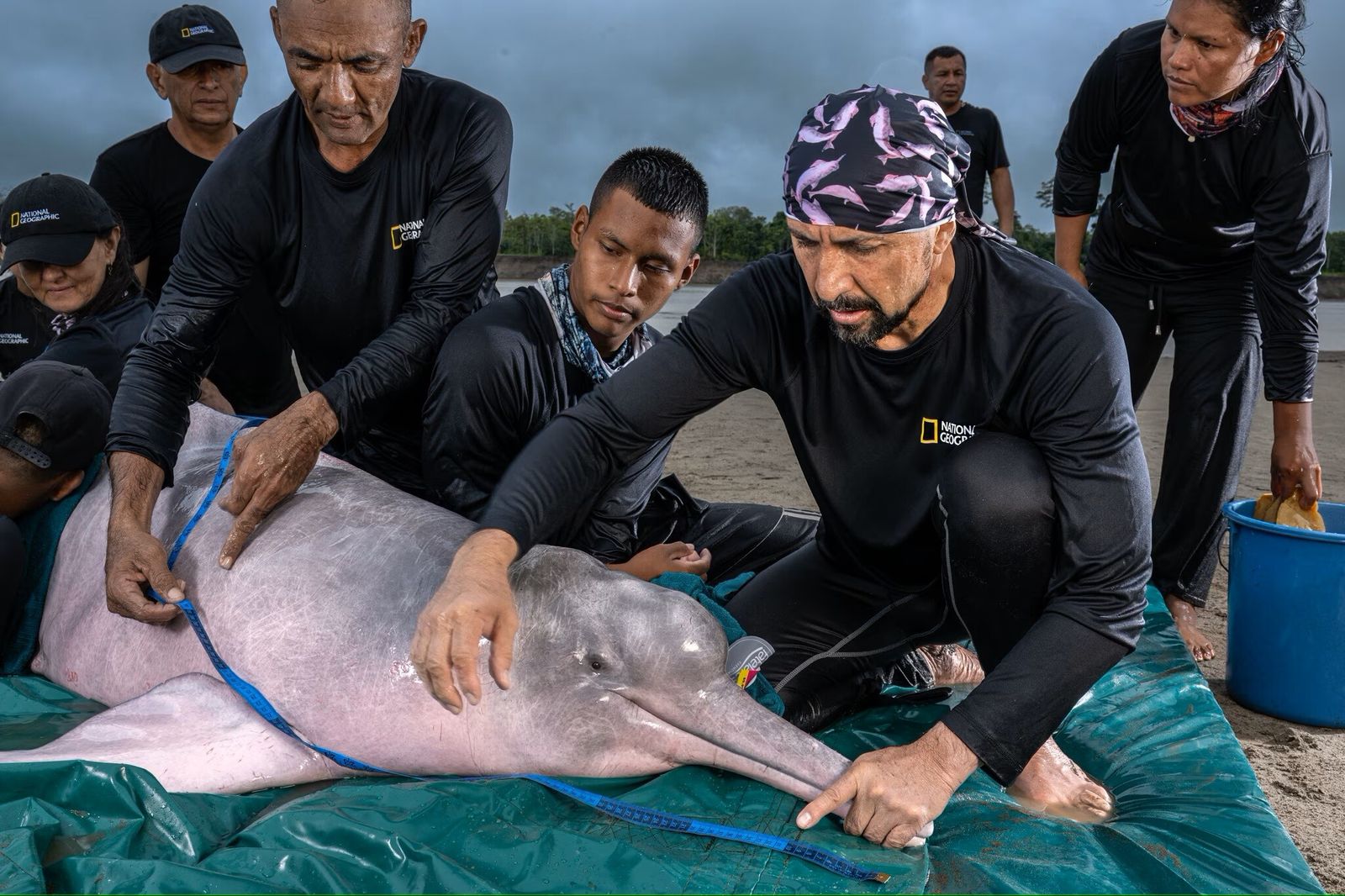Last September, Fernando Trujillo received several calls from his scientific colleagues who wanted to alert him to the alarming situation in Lake Tefé, Brazil: after a particularly brutal summer of 2023, the Amazonian watercourse had reached record temperatures, far greater than anything previously recorded, and as feared, the botos, or pink Amazon dolphins, were now in grave danger. “Three dead dolphins,” Trujillo remembers. “Then five dead dolphins. Then seventy, all in one day. »
For Trujillo, Colombian marine biologist, National Geographic explorer and global defender of freshwater dolphins, this tragedy must serve as a lesson and alert to the vulnerability of these emblematic animals of Tefé. In the space of a few days, 157 dolphins, or 10% of the lake’s population, died in this overheated water, the temperature of which approached 39°C. Two months later, as scientists continued to investigate the exact cause of the many deaths, heat stress appeared to be the most likely explanation. According to Trujillo, the sudden attention paid to these numerous deaths could allow the general public to better understand the range of threats, such as habitat loss, contaminated waters, overfishing, but also outright slaughter, which put the survival of freshwater dolphins at risk in the fourteen countries where they have been observed.
The biologist’s commitment dates back to the visit of the oceanographer Jacques Cousteau to his university, when he was still a student: « I asked him what subject it would be important to study, and he asked me answered: “The dolphins”. It was a bit like an order. »
Today, as part of National Geographic and Rolex’s Perpetual Planet Amazon Expedition, a series of scientific research projects aimed at exploring the Amazon river basin, Trujillo also helps coordinate international conservation commitments, such as the Global Declaration for Freshwater Dolphins. “The point to remember is that it’s not just dolphins that are affected. So are rivers and the 1.5 billion people who live there. For me, dolphins create the link between the general public and all the problems facing the region. And the general public listens to us. »




